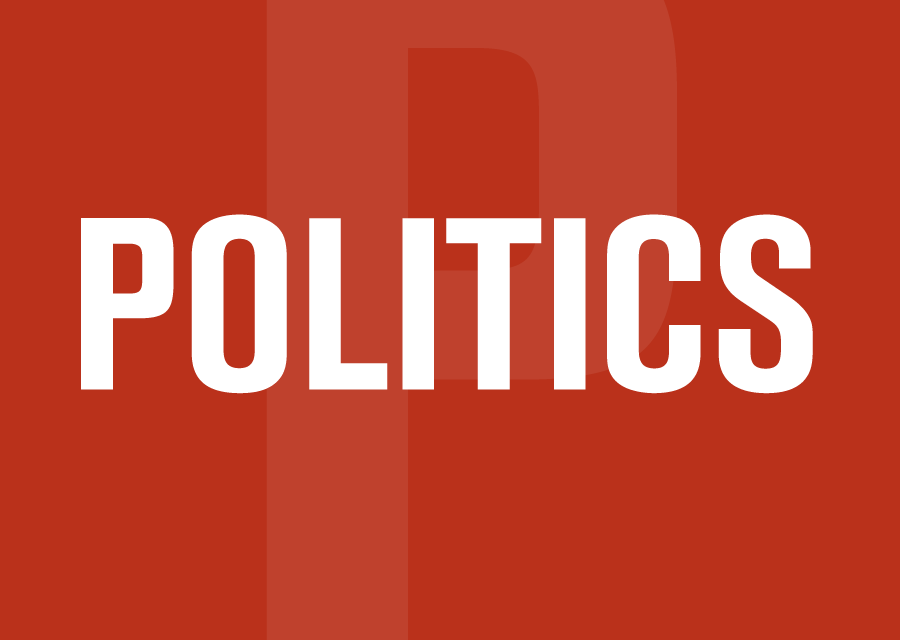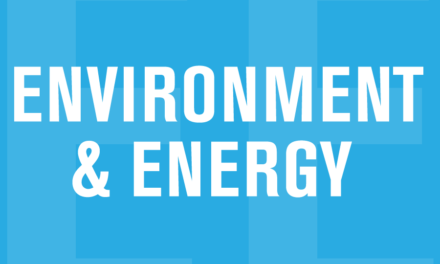A correlation between events is not proof of cause and effect. And there’s a difference between lies and half-truths. But it appears the Poilievre Conservatives are making gains in Atlantic Canada thanks to a successful campaign of fabrications about carbon pricing.
First, the correlation. According to the 338Canada project, a statistical model based on opinion polls, electoral history and demographic data, a federal election held on October 1 would have given the Conservatives half the seats in Atlantic Canada, double the number they won in 2021.
Moreover, monthly opinion polling from Abacus Data show an increase in Conservative support in the region coinciding with the advent of federal carbon pricing on July 1, going from 30 per cent support for the Conservatives in June to 43 per cent in September.
Completing the picture, an online survey by Leger for the National Post, released Sept. 20, reported that almost half of the Atlantic Canadians who participated were in favour of eliminating the carbon tax, significantly higher than the 37 per cent of Canadians overall who want – in Poilievre parlance – to “axe the tax.”
A caveat needs to be attached to the results of the Leger survey as it poses a biased question, asking what the government should do with the carbon tax “given that Canadians have been dealing with the rising costs of living.” The question essentially accepts a Conservative narrative that grossly magnifies the impact of carbon pricing on the overall cost of living, and specifically the cost of gasoline and food. But it seems a lot of those surveyed bought the line.
Rebates minimized
The process of exaggerating the negative impact of the carbon tax has both macro and micro dimensions. As far as the big picture goes, the major sin against the truth is one of omission – the Conservatives ignore the quarterly rebates that soften the impact of carbon pricing on all households and leave some – like mine – better off. Conservative silence on rebates is no surprise, however, given that if they are axed along with the tax, millions of Canadians would be out of pocket.
Ignoring the rebates is one way to minimize their benefits, something made easier by the fact that the government’s positive message – that 80 per cent of Canadians will get more in rebates than the direct and indirect cost of the carbon levy – has been muddled, courtesy of the Parliamentary Budget Office.
The PBO didn’t quarrel with the government’s 80 per cent claim as far as it went, but added another consideration – the projected overall economic impact of the tax, especially on the fossil fuel business. When anticipated lower employment and revenue from fossil fuel production are taken into account the PBO projects that by 2030 the carbon tax may impact Nova Scotia’s economy the equivalent of $1,513 a year per household. New clean fuel regulations, requiring reductions in the carbon content of fuels, are an additional factor. The regulations could potentially add another 17 cents to a litre of gas by 2030. Neither PBO projection tried to factor in economic gains from energy transition, cost reductions from new technology or avoided climate change costs.
The Conservatives ignore other projections from the PBO – such as one forecasting a long-term decline in government debt. But they wholeheartedly embrace what might be happening with carbon pricing in 2030. But that’s politics.
Impact magnified
In addition to ignoring or denying the positive impact of the rebates, the Conservatives have blown out of all proportion the effect of the carbon tax on inflation, making the rebates look like frail defence against rising prices.
The fact that the carbon levy is having some impact on the inflation rate has been acknowledged by the head of the Bank of Canada. But according to Tiff Macklem, the effect is tiny – about 0.15 per cent. With year-over-year inflation around four per cent, this means the carbon tax is responsible for just one-twenty-fifth of the price increases we are experiencing.
But people are probably less concerned with over-all inflation than than they are with food prices. Poilievre and his party have seized upon that, claiming that “the Prime minister’s carbon tax” is the primary reason for increased grocery prices, while reciting during the daily question period massive price increases for onions, potatoes, carrots and like at some mythical produce section.
Here again they are onto something, but it isn’t much. University of Calgary economist Trevor Tombe has calculated that the carbon levy adds $2 a month to the food bill for an average family in Ontario, $5 a month for a family in Alberta. Assuming the latter family spends $800 a month, that works out to about 60 cents on a $100 grocery bill. That’s in Alberta, in Ontario, it’s only 25 cents on a $100 grocery bill according to Tombe’s calculation. War, climate change and corporate profits are the main causes of higher food prices. The impact of the carbon tax on food inflation doesn’t amount to a hill of beans.
Prices at the pump
A connection between the carbon tax and the price of groceries is not one people would necessarily make. It’s different when it comes to the price of gas. People regularly monitor gas prices, and complain loudly when they go up. So any link between higher gas prices and the carbon tax is political gold for the opposition.
The rhetorical trick to exploit the link was employed by Poilievre when he led off debate on a recent Conservative motion to “repeal all carbon taxes.” He projected what the carbon levy on gasoline may be in 2030 – when the current schedule of increases comes to an end – and conflated that with inflationary pressures today.
By Poilievre’s reckoning the combination of the carbon tax, the clean fuel regulations and the GST will quadruple taxes on gasoline to 61 cents by 2030. The 61 cent projection is somewhat suspect. The carbon levy – now about 14 cents a litre – is scheduled to increase by 40 cents by 2030. But 17 cents of the 61 is based on the impact of the clean fuels regs, about which there has been a range of projections of the cost of compliance with the regulations – from six cents to 17 cents. But whether it’s 61 cents or something less, the facts are that on average gasoline prices at the pump are lower in 2023 than they were in 2022, when prices spiked due to a combination of war in Ukraine, production cuts and exorbitant oil company profits.
A good source of data on gas prices is Statistics Canada’s Monthly Average Retail Price for gasoline and fuel oil (Table 18-10-0001-01). Across Canada, the annual average monthly retail price for regular gasoline was $1.71 in 2022, dropping to $1.58 over the first eight months of 2023. The retail price drop is despite an increase in the carbon levy on gasoline from 10 cents to 14.3 cents.
Of course, Nova Scotia is in a whole different category, having enjoyed a holiday from the carbon levy until July 1 of this year. Statistics Canada doesn’t provide data on gas prices for the province as a whole, but figures for Halifax show that despite the tax, retail prices for the first two months of the carbon levy were close to those from 2022.
Halifax retail gasoline prices in cents per litre, by month and year
| 2022 | 2023 | Difference | |
| July | 187.1 | 170.2 | -16.9 |
| August | 174.7 | 185.0 | 10.3 |
| September | 156.8 | 183.9 | 27.1 |
| Oct. (2 wks) | 166.3 | 167.4 | 1.1 |
Source: Statistics Canada and NS UARB
As the table shows, average retail prices in Halifax were nearly 17 cents lower in July 2023 than in the same month the previous year. In August, retail prices were 10.3 cents higher than in August 2022. The difference increased to 27 cents in September, but maximum prices for the first two weeks of October, as set by the Nova Scotia Utility and Review Board, were only slightly above the same period in 2022.
In contrast, between January 2021 and June 2022, long before the carbon tax, retail gas prices in Halifax went up by more than one dollar – from $1.075 per litre to $2.081. The post-carbon tax increases in August and September of 2023 are modest in comparison. And now consumers in Nova Scotia have the benefit of the rebate cheques – up to $264 for a family of four in July, with a similar amount coming this month.
Despite its obvious flimflammery, if we can trust the polls the campaign against carbon pricing seems to be working in the Conservatives’ favour in Atlantic Canada. The effort has been helped along by taxpayer-funded ad campaigns against carbon pricing by the Houston government in Nova Scotia and the Higgs Conservatives in New Brunswick. It has been enough to openly spook one Liberal MP from the region.
Poilievre’s latest anti-tax motion – they have been numerous since he became leader – failed by a House of Commons vote of 209 to 119, but one of the votes in favour came from a Liberal, Newfoundland and Labrador’s Ken McDonald. And the Conservatives were quick to take advantage of the recorded vote, sending out a fund-raising appeal doubling down on their misrepresentations. “The Liberal-NDP coalition has once again voted to punish Canadians,” the missive announced. “They voted against axing Trudeau’s tax on gas, heat and groceries….and for quadrupling the tax to 61 cents a litre.”
During election campaigns news outlets have sometimes featured “Realty Checks”, on party platforms. The media should not wait until the writ drops to subject the Conservative “axe the tax” campaign to such scrutiny. The level of deception involved says much about the character of the Poilievre-led party. Even worse is the fact they would use such tactics to further their goal of cancelling a central element of Canada’s response to climate change – to the obvious benefit of the oil and gas companies.
-30-






I am not surprised about Polieve’s rise in popularity. Many Nova
Scotians, especially those living in the rural areas, drive huge trucks and don’t take the time to check out facts. I guess it’s because Polieve manages to speak to their limited scope of things.